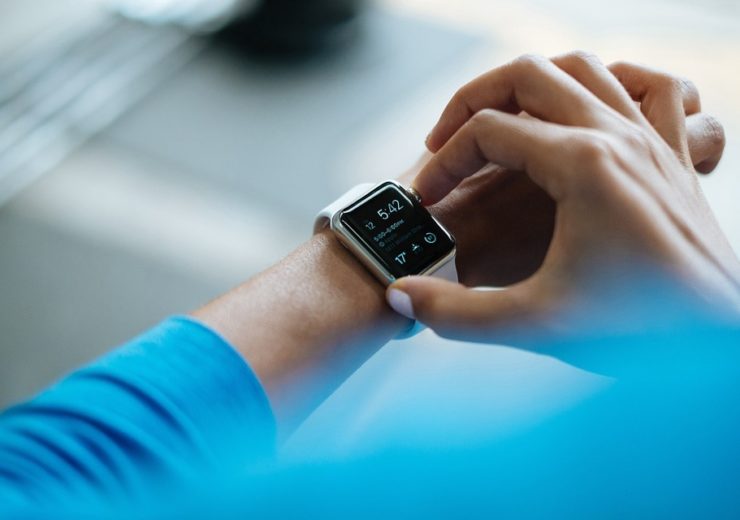Wearable technology in healthcare is rapidly expanding with advanced features that are anticipated to provide major benefits for pharma companies

Wearables have the potential to transform healthcare through the ability to remotely measure and analyse patient data in real-time monitoring (Credit: Pixabay)
From Fitbits tracking exercise to virtual reality glasses to identify concussions in athletes, progression in wearable technology has impacted both the lives of patients and healthcare providers, alike.
The technology has become a mainstream purchase for many, with more than 80% of consumers willing to wear a fitness-tracking device, according to research from Business Insider Intelligence.
Devices and connected apps to monitor physical data – leading to a healthier lifestyle and fewer visits to the doctor – are enabling users to take control of their own health.
Digital healthcare analyst Roxanne Balfe at the market intelligence firm GlobalData said: “A prominent shift is expected for wearable technology devices from the health and fitness segment, such as data storage and tracking devices, to using the technology for remote patient monitoring and big data applications.
“Within five to ten years, it is expected that these devices in healthcare will become more disease-specific with therapeutic and diagnostic capabilities that will ultimately lower costs and increase efficiencies, moving towards a preventative model of healthcare.”
How the pharma industry will integrate wearable technology into its system
As wearable technology becomes more disease-specific with therapeutic and diagnostic capabilities, it will ultimately lower costs and increase efficiencies, says GlobalData.
In 2018, the wearable tech market was worth nearly $23bn, and is forecast to grow at a compound annual growth rate of 19% to reach $54bn by 2023.
Although pharma makes up a small proportion of the wearable technology space at present, GlobalData predicts it will lead to a fully integrated system in the sector.
This is due to pharma companies increasingly looking to digital solutions to reduce costs and improve trial design and efficiency, as the size and expense of physician-monitored clinical trials continues to expand.

One key area that has observed an up-rise in the use of wearable technology is clinical research for pharmaceutical companies, as remote monitoring of patients in trials will not only result to reduced costs for companies, but also more thorough collection of real-time and real-world data, directly from patients.
In addition to utilising wearables to gather rich pools of data to personalise patient care and optimise clinical trials, it could also promote consumer health and preventative medicine.
This will provide access to patient data that will enable pharma companies to identify trends and anomalies, or to spot, and act on reactions to patients’ use of drugs.
Balfe added: “The pharmaceutical industry will be able to drive to the next level of innovation and analytics, for example by using the data captured by wearables to more effectively monitor and analyse health metrics during trials and intervene where necessary. This personalised approach will provide physicians with the tools to make the best treatment decisions for patients.
“The power of wearables to capture a diverse array of health data remotely also offers the potential to speed up the drug development process, without compromising efficacy or safety. This will draw from its ability to collect data from patients around the world in real-time, whilst decreasing the burden of trial participation for patients themselves.”
